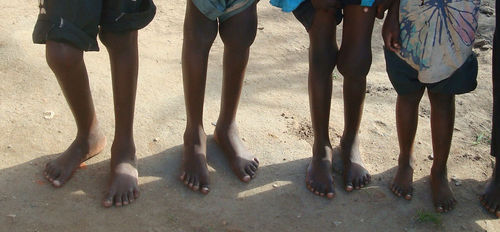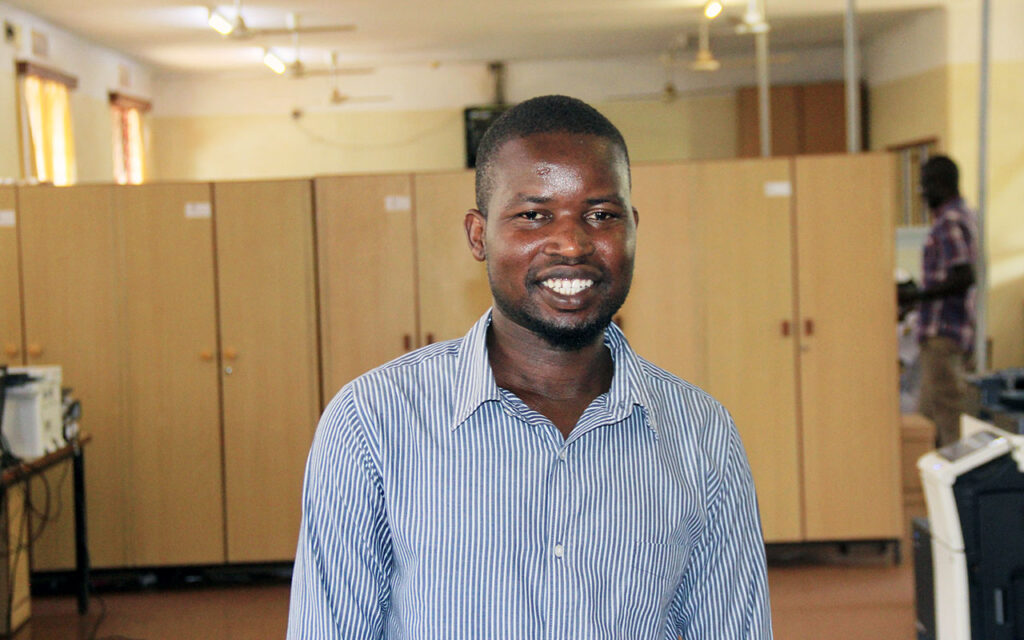“They just want to go to school and be pain free”
Tuesday mid-morning we headed out of Kampala to meet a family with three boys with haemophilia. Agnes had first spoken to them since last year and was keen to encourage them to come to Friday’s screening event and needed to arrange their transport. They live around 190 km south west of the capital; what with cars, bikes, motorbikes, cows and rain-filled potholes it was nearly two hours before we left Kampala. After posing for photographs as we crossed the equator, we drove on through Masaka and numerous villages where children had never seen white people (“mzungo”, they shouted).
Eventually, down a long red-dirt track, we reached Bikira and a path that led three ways. The mobile signal was intermittent and inevitably, it was the third path that proved correct and we drove past small holdings with banana trees and coffee plants, until we found the house.
The family assembled outside as we pulled up in front of the house. Agnes was surprised to see four boys and a sister, along with their father and heavily pregnant mother. Kigenda was diagnosed a few years ago when he almost bled to death after knee surgery. His bothers Emmanuel, Richard and Ronald have not yet had a formal diagnosis but their swollen knees and wrists all indicate severe haemophilia.

In fact, all four boys have bad joints. Although they can walk as far as the shops in the village, they are in pain when they get home. None of them is able to do the things that other boys their age would routinely do such as collecting water or fire wood from the village. Only sister Josephine goes to school. As the boys grow older, it seems likely that they will be unable to work. And of course, there is another baby on the way. Asked if she wanted a boy or a girl, the boys’ mother said she’d had a scan: it was a boy and she knew he’d be just like her other boys.
Prophylaxis, of course, could change this bleak prognosis, but even with a formal diagnosis it seems an unfeasible proposition: the nearest hospital is in Masaka, some 66km away. In fact, the only realistic treatment option at present is pain relief. We asked, through Agnes, what they would like to change about their lives. “The boys just want to go to school and be pain free,” they told us.
At around 4am on Friday morning, the four boys and their father will make the long journey to Mulago for the screening event. Although they may not get factor, the GOSH team is hoping the boys will at least go home with some crutches.
Before we left, Nicola and Jemma handed the children some toys, including a bottle of soapy liquid. Nicola showed the children how to blow bubbles. A smile lit up Kigenda’s face as he saw the bubbles float away. For a brief moment he looked as carefree as any boy his age should be.
Mike Holland is the founder of Haemnet and The Journal of Haemophilia Practice


